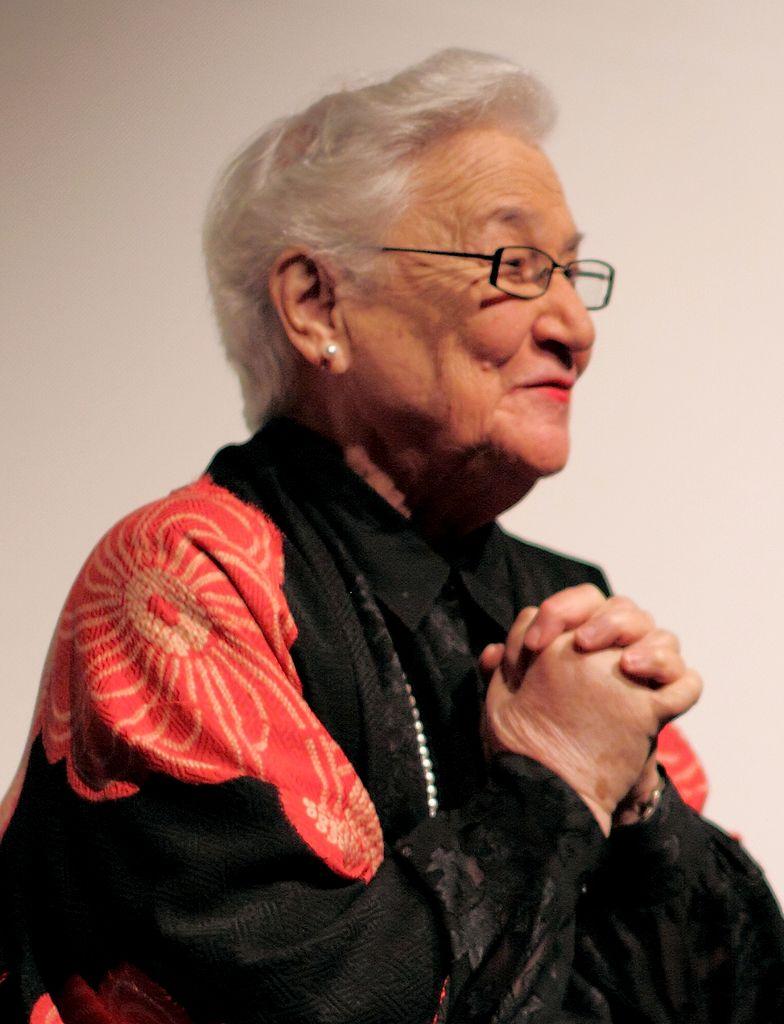Beate Sirota Gordon, American woman who helped to write the Japanese constitution, dies at the age of 89
Beate Sirota Gordon following screening of “The Sirota Family and the 20th Century” (シロタ家の20世紀 / Shirota-ke no nijyu seiki / Dir. Tomoko Fujiwara / 2008)
Who gets a chance to write a constitution at the age of 22 — and change the course of history for an entire nation of women?
American Beate Sirota Gordon, who died December 30 at age 89 in Manhattan, was given just that chance when she wrote women's rights into the 1946 post-war Japanese Constitution, reports the New York Times.
A brilliant linguist, Gordon was born to Russian-Jewish parents, who relocated to Japan while her father pursued his musical career. While growing up in Japan, Gordon was disturbed by the poor treatment of women she observed — a sentiment she would call upon while writing Japan's Constitution after the end of the war.
During World War II, at the age of 16, she left for college in California. As the war raged through Asia, she was horrified to learn her parents had gone missing.
Read more from GlobalPost: Sendai Airport in Japan cancels flights after unexploded WWII bomb found near runway
Determined to find her family, Gordon headed to Washington, DC in 1945. Just 22, she secured a job as an interpreter with Gen. Douglas MacArthur's team. She eventually found her parents starving in a refugee camp, and continued her work for MacArthur, while nursing them back to health.
In 1946, the Japanese Constitution had to be completed in a matter of days, and Gordon — the only female member of the 25-person team — was trusted with writing the parts of the document that pertained specifically to women, wrote the Japan Times.
After much hard work and study, Gordon drafted Articles 14 and 24 of the Japanese Constitution, which state (in part) that "laws shall be enacted from the standpoint of individual dignity and the essential equality of the sexes." She consulted on other articles in the document, as well.
According to Temple University Japan's Kuniko Fujisawa, Gordon pushed through women's rights in the new constitution over the objections of the Japanese representatives in the room — all of them male.
Fujisawa added that Gordon "wrote women’s rights as explicitly as possible so that the constitutional intent could not be eviscerated by Japanese old, male bureaucrats, when they would prepare the new Civil Code at a later time."
Gordon kept her involvement in the constitution quiet for years, wrote The New York Times, fearing that her young age and her American citizenship would help give ammunition to conservatives who sought to change the document.
Read more from GlobalPost: Indian WWII "spy princess" is honored with a London monument
Gordon went on to an illustrious career focused on the promotion of Asian arts in the US, eventually serving as performing arts director of the Asia Society in New York City, a role she held from 1970 until 1991.
Former Asia Society President Bob Oxnam wrote on the organization's blog: "We all know that Beate single handedly created the modern Western appreciation of Asian performing arts."
Gordon eventually became more open about her involvement in Japan's modern history, authoring the book "The Only Woman in the Room," which she discusses in the video below.
She became a Japanese feminist hero, widely remembered for her efforts to gain women rights they'd never previously enjoyed in the conservative East Asian nation, and was regularly invited to speak to her admirers on May 3, Japan's Constitution Day.
In 1998, she was officially decorated by the Japanese government for her service, awarded the Order of the Sacred Treasure.
Before her death, she had been the last surviving member of Gen. MacArthur's 1946 team devoted to writing Japan's post-World War II constitution.
Here is Gordon giving a 2011 commencement speech at Mills College, her California alma mater.
The story you just read is not locked behind a paywall because listeners and readers like you generously support our nonprofit newsroom. If you’ve been thinking about making a donation, this is the best time to do it. Your support will get our fundraiser off to a solid start and help keep our newsroom on strong footing. If you believe in our work, will you give today? We need your help now more than ever!
